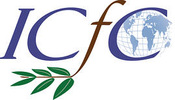
Listen to a performance of the opera.

Visit the ICFC website.
News and opinions about Klinghoffer:
1991 New York Times Review Alex Ross on the Met's "Klinghoffer Problem" "Long Wake:" A Follow-up Article by Ross Another Way of Approaching Klinghoffer |
The staging of John Adams’ The Death of Klinghoffer, an opera based on the 1985 hijacking of a cruise ship by the Palestinian Liberation Front and their murder of wheelchair-bound Jewish American passenger Leon Klinghoffer, raises complex issues. Does the depiction valorize terrorism? Is it the responsibility of public institutions to balance artistic freedom of expression with the rights of individuals and groups?
Angry and polarizing expressions are being made on all sides. It is a conflict between art lovers, who certainly include Jews and other partisans of the conflicts in the Middle East, but who reserve the right to deal with this in artistic terms. Their opponents in this instance include people for whom the terms of engagement in the Middle East are of paramount concern, and who as Jews, Israelis, and advocates of Israel, as well as Arabs, Muslims and advocates of Palestine, have arrived at the point of consensus in vehemently rejecting terrorism as a strategy. Can this conflict on the stageworthiness of the Death of Klinghoffer become a foundation for new alliances between old combatants and their supporters? This debate offers an opportunity to bring together various groups in civil conversation, discussing, developing common cause, and experiencing new alliances. We propose that the conflict be moved “from the battle fields to people’s living rooms," encouraging people to read sections of the libretto and listen to parts of the music that are together being staged at the MET. Viewers from different backgrounds with different connections to the issues being staged, including whether terrorism can ever be legitimated, will be encouraged to express their deepest and most candid responses to the opera itself and to its current staging. The International Center for Conciliation, www.centerforconciliation.org, is an NGO that observes and responds to the proliferation of identity-based conflicts the world over. It trains leaders, concerned citizens, and particularly young people to transform these conflicts into “cultures of peace,” pre-requisites to the successful implementation of any peace process. The ICfC observes, in this emerging conflict surrounding the Death of Klinghoffer, opportunities to help people on all sides of this issue discover the potential for better understanding and, therefore, for greater cooperation with the “other.” The ICfC in the coming days will distribute this announcement to individuals and groups who might be interested in convening such groups. It will connect both with the Metropolitan Opera officials as well as representatives of the opposition groups to inform each side of its intentions. Selections of the Opera, highlights of the vocal, instrumental, and narrative segments, accompanied by the matching sections of the libretto, will be made available to “living room conversation groups.” Panelists for and against the MET production will cooperate in ensuring that this selection fairly represents the work. Additionally, we will make available some basic guidelines for facilitators in each group to keep conversations going in the direction of full participation of all people convened. Participants in these groups representing different stakeholders on issues of terrorism, including veterans, journalists, diplomats, and members of minority civilian groups victimized by terrorism. They will be encouraged to clarify their feelings, and to decide upon joint action involving a variety of effective responses to the performance. Facilitators, group organizers, and participants also will be asked to fill out a questionnaire to be retuned to the ICfC which will be presented to the MET for comment and then released to the press. By encouraging these meetings in the coming weeks, we hope to clarify the specific issues, while at the same time relating positions taken to our goal of strengthening “cultures of peace” within the general public. | ||||||||||||
 |
